×
Il semble que vous utilisiez une version obsolète de internet explorer. Internet explorer n'est plus supporté par Microsoft depuis fin 2015. Nous vous invitons à utiliser un navigateur plus récent tel que Firefox, Google Chrome ou Microsoft Edge.

Devenez membre d'Incathlab et bénéficiez d'un accès complet !
Vous devez être membre pour accéder aux vidéos Incathlab sans limitation. Inscrivez vous gratuitement en moins d'une minute et accédez à tous les services Incathlab ! Vous avez aussi la possibilité de vous connecter directement avec votre compte facebook ou twitter en cliquant sur login en haut à droite du site.
Inscription Connexion
Inscription Connexion
50262 vues
Diagnostic image

Program
- 12:30 Introduction
- 12:35 Live case: LAD-Diagonal Bifurcation lesion - Dr Pansieri, Dr Avran, Dr Delorme
- 13:15 Coroflex ISAR: Features and long term clinical data - Dr Pansieri
- 13:25 Case-in-the-box n°1 - panel discussion
- 13:30 "DEB only": a strategy for the novo lesions in small vessel - Dr Delorme
- 13:40 Case-in-the-box n°2 - panel discussion
- 13:45 Drug Eluting Balloon: best option for in-stent restenosis? - Dr Pansieri
- 13:55 Take home messages
Educational objectives
- Improve coronary angioplasty knowledge (techniques and approach strategies).
- Discuss the choice of a material with or without polymer (Drug eluting stent and balloon).
- How to assess DEB results on patients.
- Compare techniques and approach strategies of different experts.
Audience
- This web symposium is dedicated to interventional cardiologists interested and/or specialized in coronary angioplasty.
- A prerequisite for attendees is an initial knowledge and practice of angioplasty.
Date du tournage : 15/03/2017
Dernière mise à jour : 25/06/2018
Dernière mise à jour : 25/06/2018
Coroflex® ISAR / B. Braun
Sirolimus eluting polymer-free coronary stent system
Participer à la discussion
Suggestions
Discover now !
Everything you wanted to know about Recross without having to ask
Alex & The Young Generation - Ep.12
Partager
Mercredi 4 octobre 2023 de 18h à 18h45 (GMT+2)
Honolulu : Mercredi 4 octobre 2023 de 07h à 07h45 (GMT+2)
San Francisco : Mercredi 4 octobre 2023 de 10h à 10h45 (GMT+2)
New York : Mercredi 4 octobre 2023 de 13h à 13h45 (GMT+2)
Buenos Aires : Mercredi 4 octobre 2023 de 14h à 14h45 (GMT+2)
Reykjavik : Mercredi 4 octobre 2023 de 17h à 17h45 (GMT+2)
London / Dublin : Mercredi 4 octobre 2023 de 18h à 18h45 (GMT+2)
Paris / Berlin : Mercredi 4 octobre 2023 de 19h à 19h45 (GMT+2)
Istanbul : Mercredi 4 octobre 2023 de 20h à 20h45 (GMT+2)
Moscou / Dubaï : Mercredi 4 octobre 2023 de 21h à 21h45 (GMT+2)
Bangkok : Jeudi 5 octobre 2023 de 00h à 00h45 (GMT+2)
Shanghai : Jeudi 5 octobre 2023 de 01h à 01h45 (GMT+2)
Tokyo : Jeudi 5 octobre 2023 de 02h à 02h45 (GMT+2)
Sydney : Jeudi 5 octobre 2023 de 04h à 04h45 (GMT+2)
Wellington : Jeudi 5 octobre 2023 de 06h à 06h45 (GMT+2)
San Francisco : Mercredi 4 octobre 2023 de 10h à 10h45 (GMT+2)
New York : Mercredi 4 octobre 2023 de 13h à 13h45 (GMT+2)
Buenos Aires : Mercredi 4 octobre 2023 de 14h à 14h45 (GMT+2)
Reykjavik : Mercredi 4 octobre 2023 de 17h à 17h45 (GMT+2)
London / Dublin : Mercredi 4 octobre 2023 de 18h à 18h45 (GMT+2)
Paris / Berlin : Mercredi 4 octobre 2023 de 19h à 19h45 (GMT+2)
Istanbul : Mercredi 4 octobre 2023 de 20h à 20h45 (GMT+2)
Moscou / Dubaï : Mercredi 4 octobre 2023 de 21h à 21h45 (GMT+2)
Bangkok : Jeudi 5 octobre 2023 de 00h à 00h45 (GMT+2)
Shanghai : Jeudi 5 octobre 2023 de 01h à 01h45 (GMT+2)
Tokyo : Jeudi 5 octobre 2023 de 02h à 02h45 (GMT+2)
Sydney : Jeudi 5 octobre 2023 de 04h à 04h45 (GMT+2)
Wellington : Jeudi 5 octobre 2023 de 06h à 06h45 (GMT+2)
Guides de 1ère intention :
algorithme décisionnel de la lésion simple à la lésion complexe
Partager
Mercredi 2 avril 2025 de 18h à 19h (GMT+2)
Honolulu : Mercredi 2 avril 2025 de 07h à 08h (GMT+2)
San Francisco : Mercredi 2 avril 2025 de 10h à 11h (GMT+2)
New York : Mercredi 2 avril 2025 de 13h à 14h (GMT+2)
Buenos Aires : Mercredi 2 avril 2025 de 14h à 15h (GMT+2)
Reykjavik : Mercredi 2 avril 2025 de 17h à 18h (GMT+2)
London / Dublin : Mercredi 2 avril 2025 de 18h à 19h (GMT+2)
Paris / Berlin : Mercredi 2 avril 2025 de 19h à 20h (GMT+2)
Istanbul : Mercredi 2 avril 2025 de 20h à 21h (GMT+2)
Moscou / Dubaï : Mercredi 2 avril 2025 de 21h à 22h (GMT+2)
Bangkok : Jeudi 3 avril 2025 de 00h à 01h (GMT+2)
Shanghai : Jeudi 3 avril 2025 de 01h à 02h (GMT+2)
Tokyo : Jeudi 3 avril 2025 de 02h à 03h (GMT+2)
Sydney : Jeudi 3 avril 2025 de 04h à 05h (GMT+2)
Wellington : Jeudi 3 avril 2025 de 06h à 07h (GMT+2)
San Francisco : Mercredi 2 avril 2025 de 10h à 11h (GMT+2)
New York : Mercredi 2 avril 2025 de 13h à 14h (GMT+2)
Buenos Aires : Mercredi 2 avril 2025 de 14h à 15h (GMT+2)
Reykjavik : Mercredi 2 avril 2025 de 17h à 18h (GMT+2)
London / Dublin : Mercredi 2 avril 2025 de 18h à 19h (GMT+2)
Paris / Berlin : Mercredi 2 avril 2025 de 19h à 20h (GMT+2)
Istanbul : Mercredi 2 avril 2025 de 20h à 21h (GMT+2)
Moscou / Dubaï : Mercredi 2 avril 2025 de 21h à 22h (GMT+2)
Bangkok : Jeudi 3 avril 2025 de 00h à 01h (GMT+2)
Shanghai : Jeudi 3 avril 2025 de 01h à 02h (GMT+2)
Tokyo : Jeudi 3 avril 2025 de 02h à 03h (GMT+2)
Sydney : Jeudi 3 avril 2025 de 04h à 05h (GMT+2)
Wellington : Jeudi 3 avril 2025 de 06h à 07h (GMT+2)
Le choix des armes contre les lésions calcifiées
Nouveaux outils pour la prise en charge de calcifications coronaires
Partager
Samedi 29 mars 2025 de 08h à 22h (GMT+1)
Honolulu : Vendredi 28 mars 2025 de 21h à 11h (GMT+1)
San Francisco : Vendredi 28 mars 2025 de 23h à 13h (GMT+1)
New York : Samedi 29 mars 2025 de 02h à 16h (GMT+1)
Buenos Aires : Samedi 29 mars 2025 de 04h à 18h (GMT+1)
London / Dublin : Samedi 29 mars 2025 de 07h à 21h (GMT+1)
Paris / Berlin : Samedi 29 mars 2025 de 08h à 22h (GMT+1)
Istanbul : Samedi 29 mars 2025 de 09h à 23h (GMT+1)
Moscou / Dubaï : Samedi 29 mars 2025 de 11h à 01h (GMT+1)
Bangkok : Samedi 29 mars 2025 de 14h à 04h (GMT+1)
Shanghai : Samedi 29 mars 2025 de 15h à 05h (GMT+1)
Tokyo : Samedi 29 mars 2025 de 16h à 06h (GMT+1)
Sydney : Samedi 29 mars 2025 de 17h à 07h (GMT+1)
Wellington : Samedi 29 mars 2025 de 19h à 09h (GMT+1)
San Francisco : Vendredi 28 mars 2025 de 23h à 13h (GMT+1)
New York : Samedi 29 mars 2025 de 02h à 16h (GMT+1)
Buenos Aires : Samedi 29 mars 2025 de 04h à 18h (GMT+1)
London / Dublin : Samedi 29 mars 2025 de 07h à 21h (GMT+1)
Paris / Berlin : Samedi 29 mars 2025 de 08h à 22h (GMT+1)
Istanbul : Samedi 29 mars 2025 de 09h à 23h (GMT+1)
Moscou / Dubaï : Samedi 29 mars 2025 de 11h à 01h (GMT+1)
Bangkok : Samedi 29 mars 2025 de 14h à 04h (GMT+1)
Shanghai : Samedi 29 mars 2025 de 15h à 05h (GMT+1)
Tokyo : Samedi 29 mars 2025 de 16h à 06h (GMT+1)
Sydney : Samedi 29 mars 2025 de 17h à 07h (GMT+1)
Wellington : Samedi 29 mars 2025 de 19h à 09h (GMT+1)
Complex & High-Risk Indicated Procedures
Discover the 6th edition - Day #2
Partager
Mercredi 23 novembre 2022 de 17h à 18h (GMT+1)
Honolulu : Mercredi 23 novembre 2022 de 06h à 07h (GMT+1)
San Francisco : Mercredi 23 novembre 2022 de 08h à 09h (GMT+1)
New York : Mercredi 23 novembre 2022 de 11h à 12h (GMT+1)
Buenos Aires : Mercredi 23 novembre 2022 de 13h à 14h (GMT+1)
London / Dublin : Mercredi 23 novembre 2022 de 16h à 17h (GMT+1)
Paris / Berlin : Mercredi 23 novembre 2022 de 17h à 18h (GMT+1)
Istanbul : Mercredi 23 novembre 2022 de 18h à 19h (GMT+1)
Moscou / Dubaï : Mercredi 23 novembre 2022 de 20h à 21h (GMT+1)
Bangkok : Mercredi 23 novembre 2022 de 23h à 00h (GMT+1)
Shanghai : Jeudi 24 novembre 2022 de 00h à 01h (GMT+1)
Tokyo : Jeudi 24 novembre 2022 de 01h à 02h (GMT+1)
Sydney : Jeudi 24 novembre 2022 de 02h à 03h (GMT+1)
Wellington : Jeudi 24 novembre 2022 de 04h à 05h (GMT+1)
San Francisco : Mercredi 23 novembre 2022 de 08h à 09h (GMT+1)
New York : Mercredi 23 novembre 2022 de 11h à 12h (GMT+1)
Buenos Aires : Mercredi 23 novembre 2022 de 13h à 14h (GMT+1)
London / Dublin : Mercredi 23 novembre 2022 de 16h à 17h (GMT+1)
Paris / Berlin : Mercredi 23 novembre 2022 de 17h à 18h (GMT+1)
Istanbul : Mercredi 23 novembre 2022 de 18h à 19h (GMT+1)
Moscou / Dubaï : Mercredi 23 novembre 2022 de 20h à 21h (GMT+1)
Bangkok : Mercredi 23 novembre 2022 de 23h à 00h (GMT+1)
Shanghai : Jeudi 24 novembre 2022 de 00h à 01h (GMT+1)
Tokyo : Jeudi 24 novembre 2022 de 01h à 02h (GMT+1)
Sydney : Jeudi 24 novembre 2022 de 02h à 03h (GMT+1)
Wellington : Jeudi 24 novembre 2022 de 04h à 05h (GMT+1)
UNCAGE coronaries - Episode 3 : UNCAGE chronic total occlusions
Partager
Lundi 30 octobre 2023 de 17h à 18h (GMT+1)
Honolulu : Lundi 30 octobre 2023 de 06h à 07h (GMT+1)
San Francisco : Lundi 30 octobre 2023 de 08h à 09h (GMT+1)
New York : Lundi 30 octobre 2023 de 11h à 12h (GMT+1)
Buenos Aires : Lundi 30 octobre 2023 de 13h à 14h (GMT+1)
London / Dublin : Lundi 30 octobre 2023 de 16h à 17h (GMT+1)
Paris / Berlin : Lundi 30 octobre 2023 de 17h à 18h (GMT+1)
Istanbul : Lundi 30 octobre 2023 de 18h à 19h (GMT+1)
Moscou / Dubaï : Lundi 30 octobre 2023 de 20h à 21h (GMT+1)
Bangkok : Lundi 30 octobre 2023 de 23h à 00h (GMT+1)
Shanghai : Mardi 31 octobre 2023 de 00h à 01h (GMT+1)
Tokyo : Mardi 31 octobre 2023 de 01h à 02h (GMT+1)
Sydney : Mardi 31 octobre 2023 de 02h à 03h (GMT+1)
Wellington : Mardi 31 octobre 2023 de 04h à 05h (GMT+1)
San Francisco : Lundi 30 octobre 2023 de 08h à 09h (GMT+1)
New York : Lundi 30 octobre 2023 de 11h à 12h (GMT+1)
Buenos Aires : Lundi 30 octobre 2023 de 13h à 14h (GMT+1)
London / Dublin : Lundi 30 octobre 2023 de 16h à 17h (GMT+1)
Paris / Berlin : Lundi 30 octobre 2023 de 17h à 18h (GMT+1)
Istanbul : Lundi 30 octobre 2023 de 18h à 19h (GMT+1)
Moscou / Dubaï : Lundi 30 octobre 2023 de 20h à 21h (GMT+1)
Bangkok : Lundi 30 octobre 2023 de 23h à 00h (GMT+1)
Shanghai : Mardi 31 octobre 2023 de 00h à 01h (GMT+1)
Tokyo : Mardi 31 octobre 2023 de 01h à 02h (GMT+1)
Sydney : Mardi 31 octobre 2023 de 02h à 03h (GMT+1)
Wellington : Mardi 31 octobre 2023 de 04h à 05h (GMT+1)
How do the new antithrombotic recommendations affect your HBR patients?
Gain insights from a patient case analysis
Partager
Vendredi 17 février 2023 de 12h30 à 14h (GMT+1)
Honolulu : Vendredi 17 février 2023 de 01h30 à 03h (GMT+1)
San Francisco : Vendredi 17 février 2023 de 03h30 à 05h (GMT+1)
New York : Vendredi 17 février 2023 de 06h30 à 08h (GMT+1)
Buenos Aires : Vendredi 17 février 2023 de 08h30 à 10h (GMT+1)
London / Dublin : Vendredi 17 février 2023 de 11h30 à 13h (GMT+1)
Paris / Berlin : Vendredi 17 février 2023 de 12h30 à 14h (GMT+1)
Istanbul : Vendredi 17 février 2023 de 13h30 à 15h (GMT+1)
Moscou / Dubaï : Vendredi 17 février 2023 de 15h30 à 17h (GMT+1)
Bangkok : Vendredi 17 février 2023 de 18h30 à 20h (GMT+1)
Shanghai : Vendredi 17 février 2023 de 19h30 à 21h (GMT+1)
Tokyo : Vendredi 17 février 2023 de 20h30 à 22h (GMT+1)
Sydney : Vendredi 17 février 2023 de 21h30 à 23h (GMT+1)
Wellington : Vendredi 17 février 2023 de 23h30 à 01h (GMT+1)
San Francisco : Vendredi 17 février 2023 de 03h30 à 05h (GMT+1)
New York : Vendredi 17 février 2023 de 06h30 à 08h (GMT+1)
Buenos Aires : Vendredi 17 février 2023 de 08h30 à 10h (GMT+1)
London / Dublin : Vendredi 17 février 2023 de 11h30 à 13h (GMT+1)
Paris / Berlin : Vendredi 17 février 2023 de 12h30 à 14h (GMT+1)
Istanbul : Vendredi 17 février 2023 de 13h30 à 15h (GMT+1)
Moscou / Dubaï : Vendredi 17 février 2023 de 15h30 à 17h (GMT+1)
Bangkok : Vendredi 17 février 2023 de 18h30 à 20h (GMT+1)
Shanghai : Vendredi 17 février 2023 de 19h30 à 21h (GMT+1)
Tokyo : Vendredi 17 février 2023 de 20h30 à 22h (GMT+1)
Sydney : Vendredi 17 février 2023 de 21h30 à 23h (GMT+1)
Wellington : Vendredi 17 février 2023 de 23h30 à 01h (GMT+1)
Coronary sinus reducer
Partager

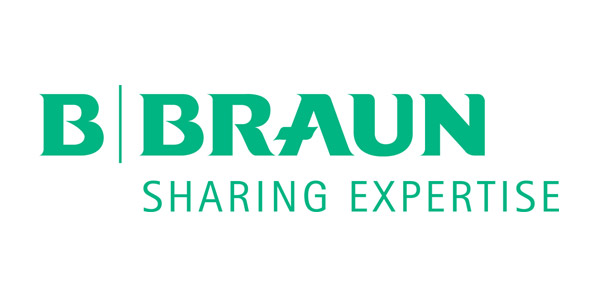
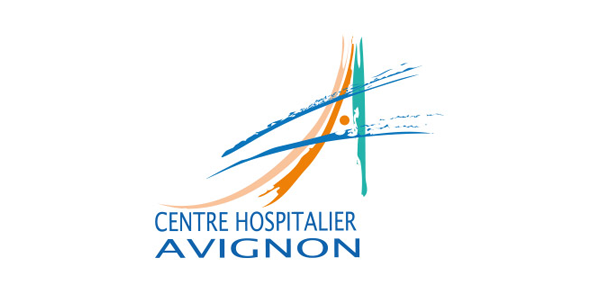
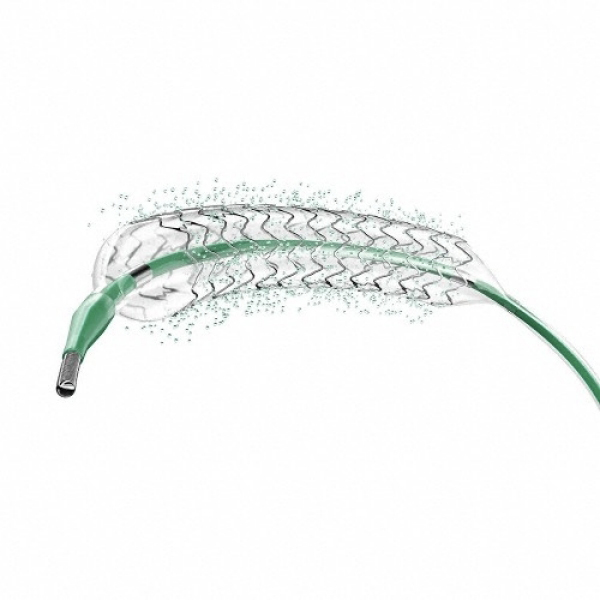

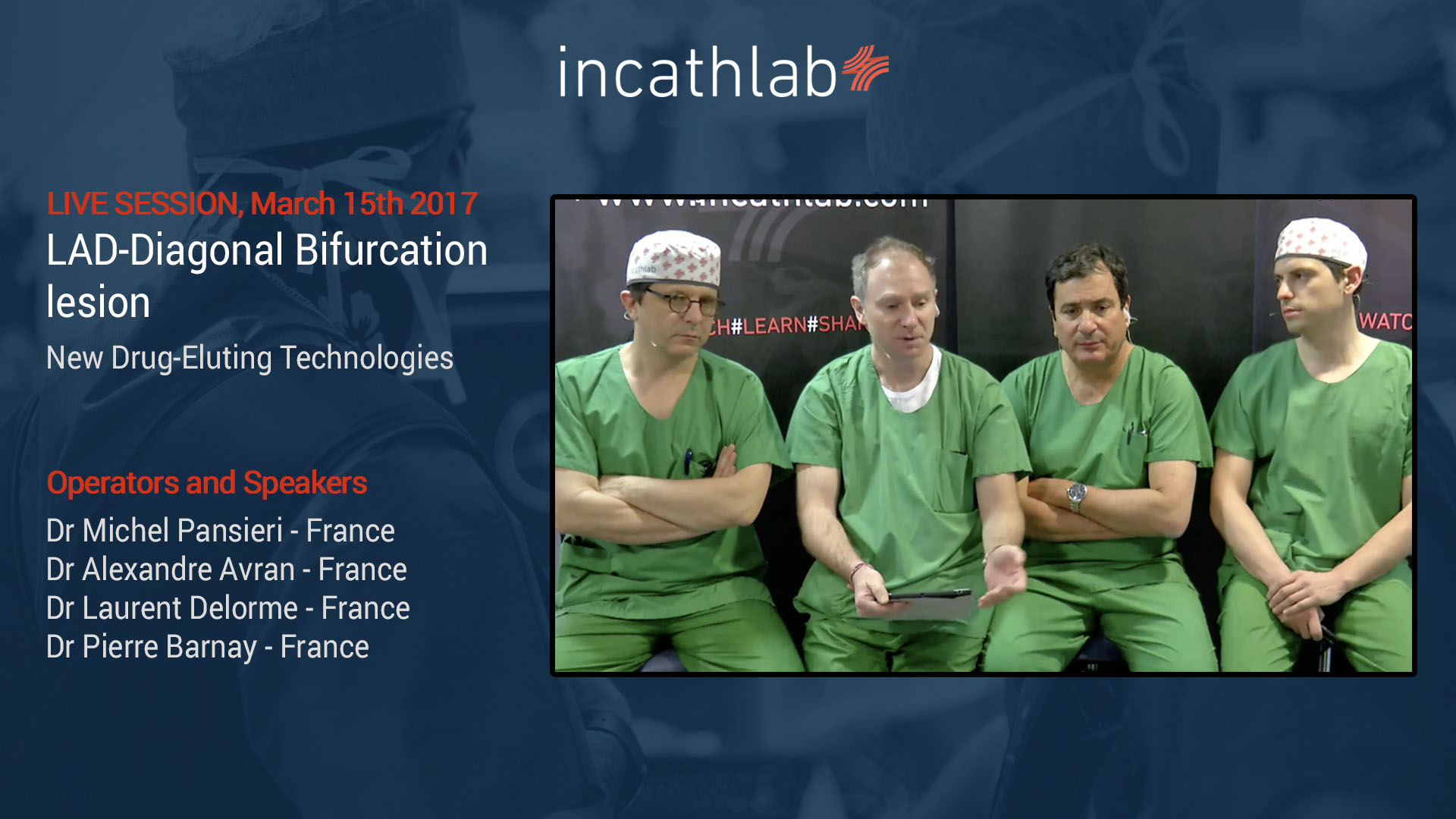
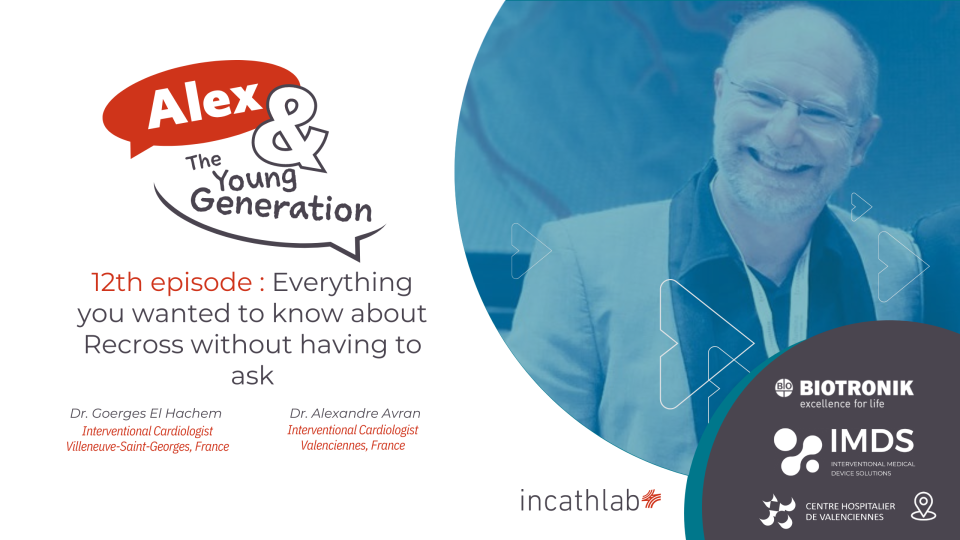
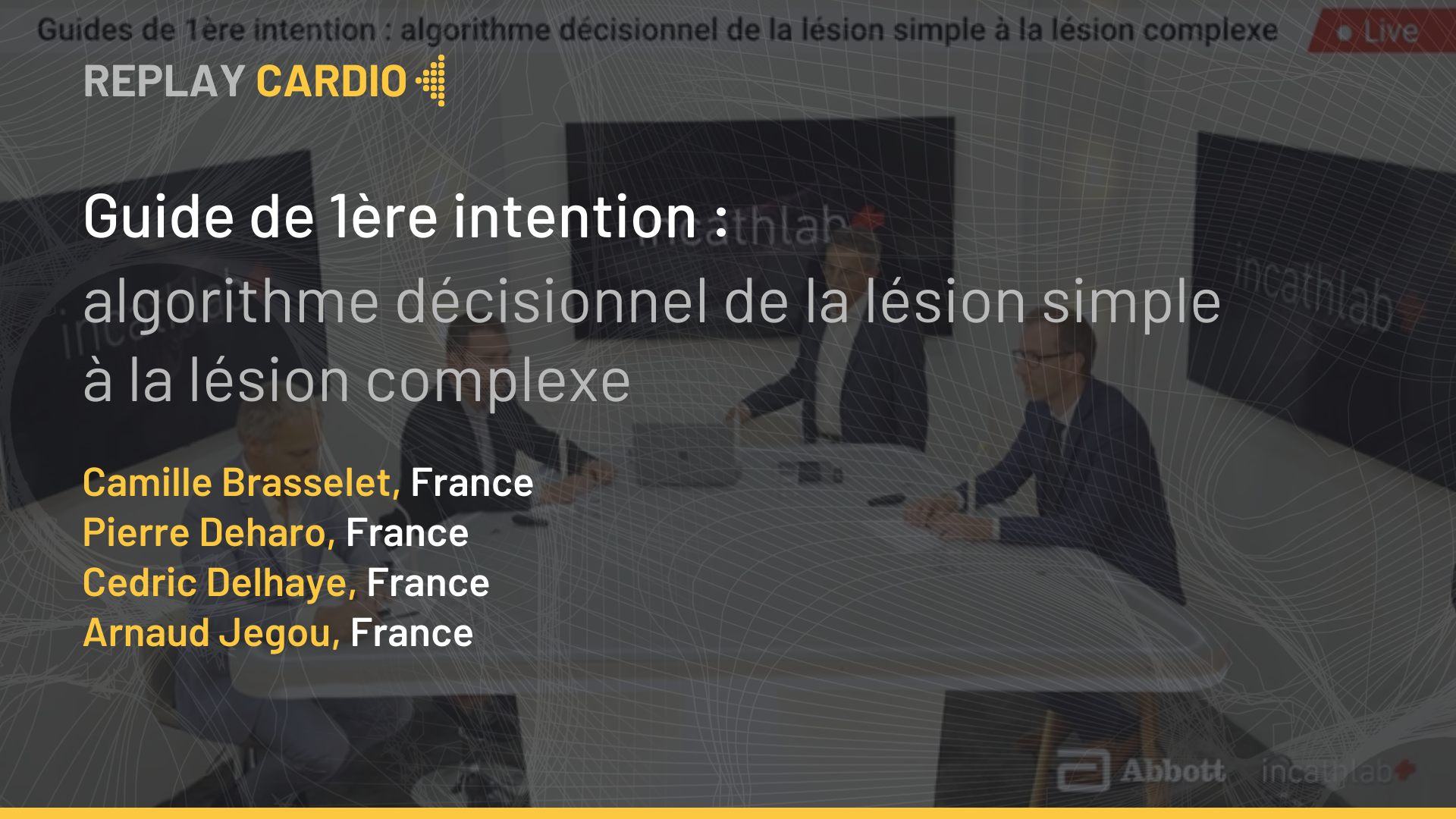
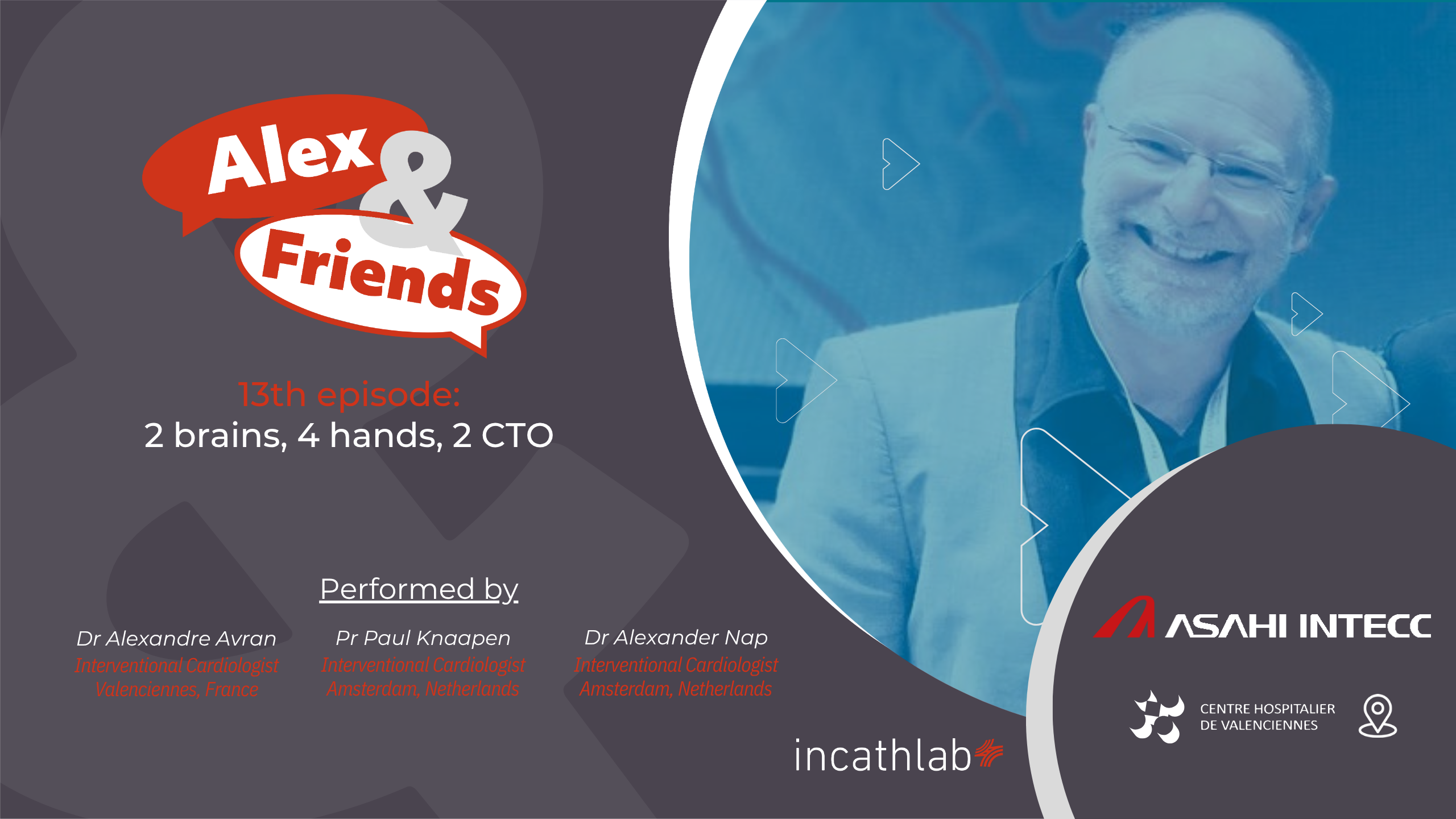
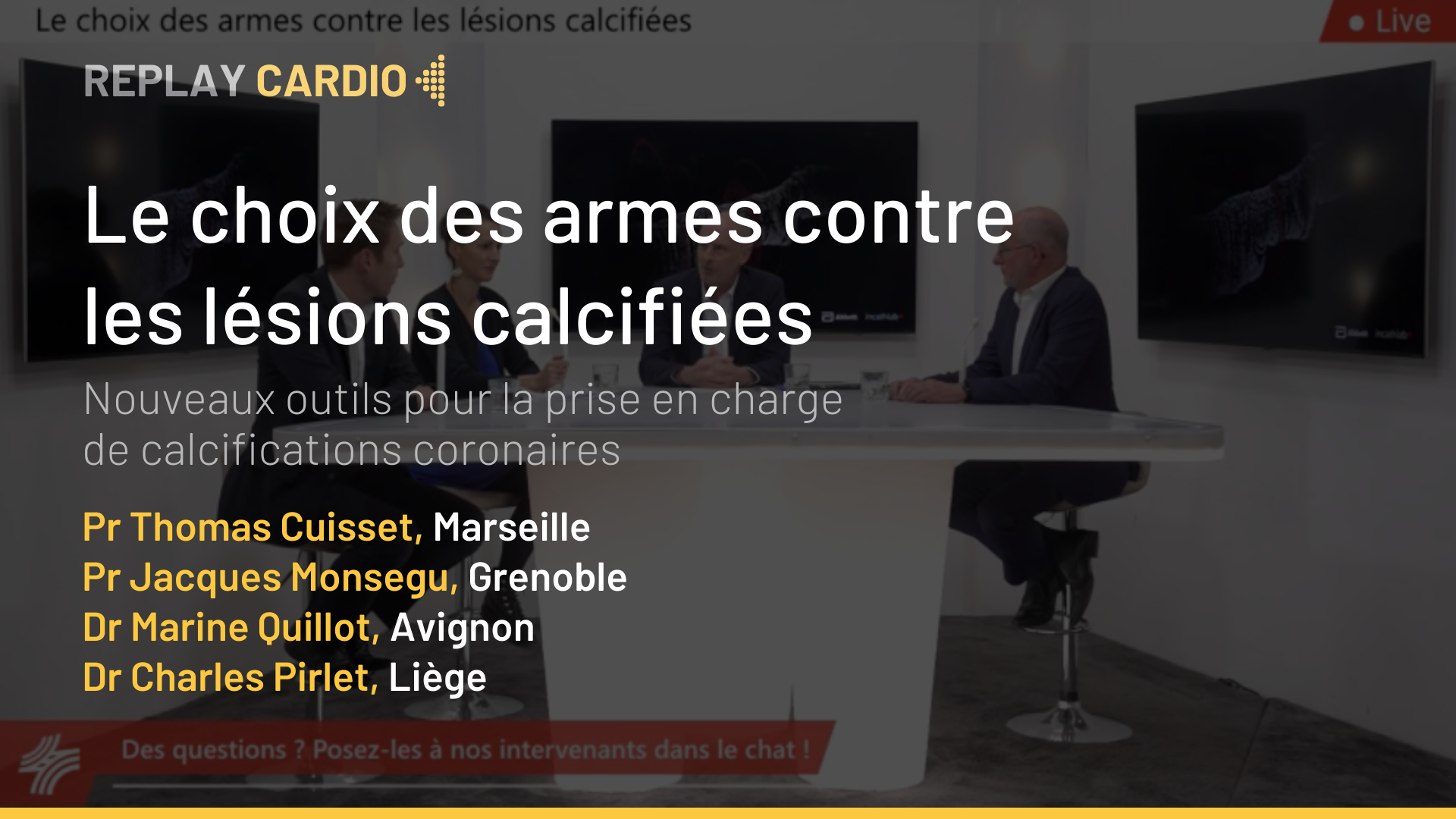
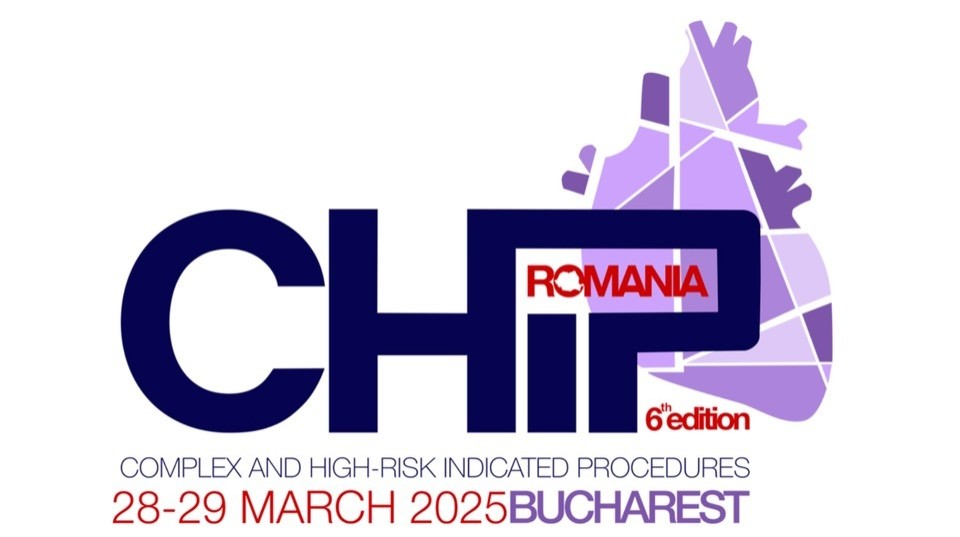
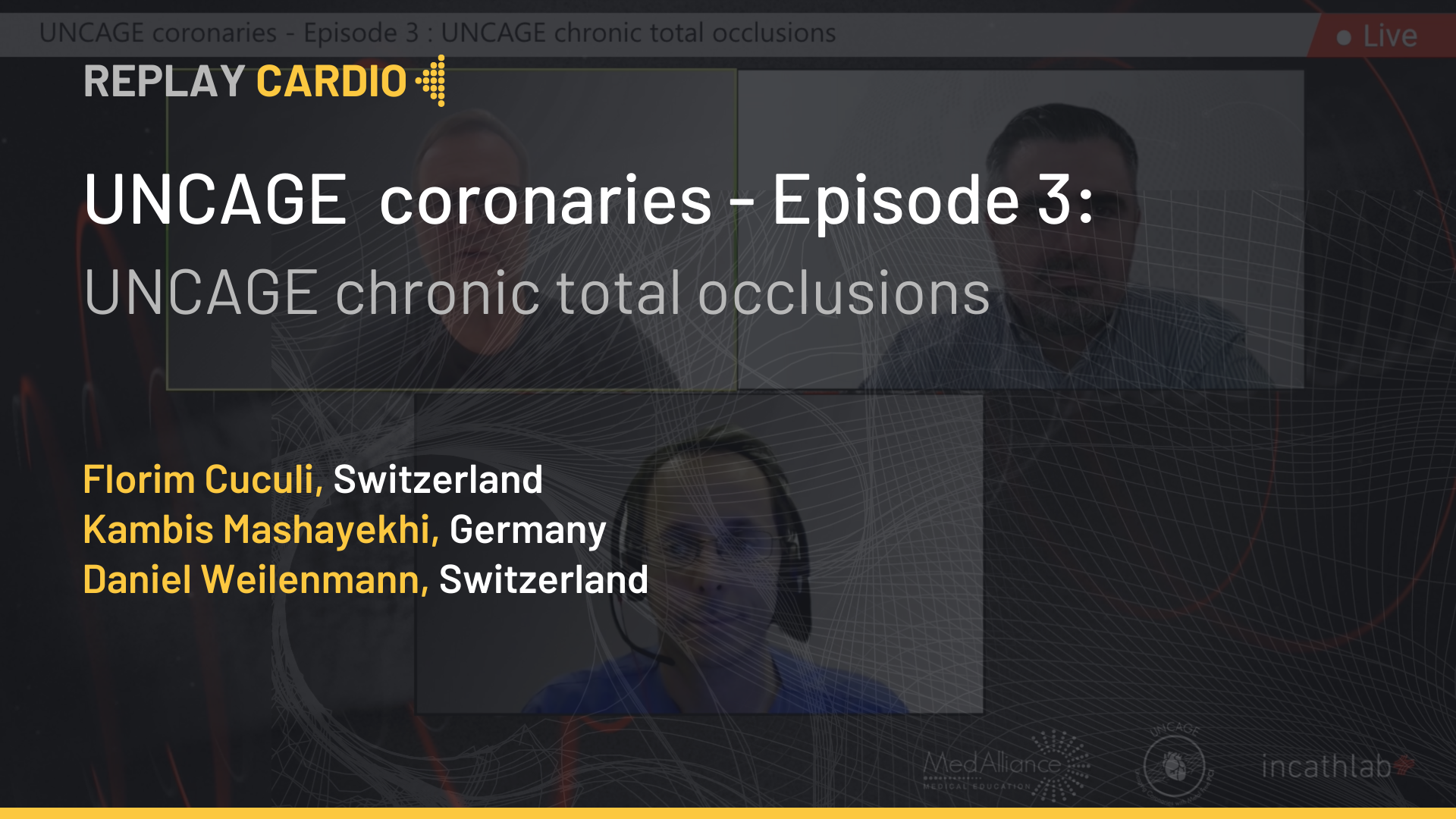

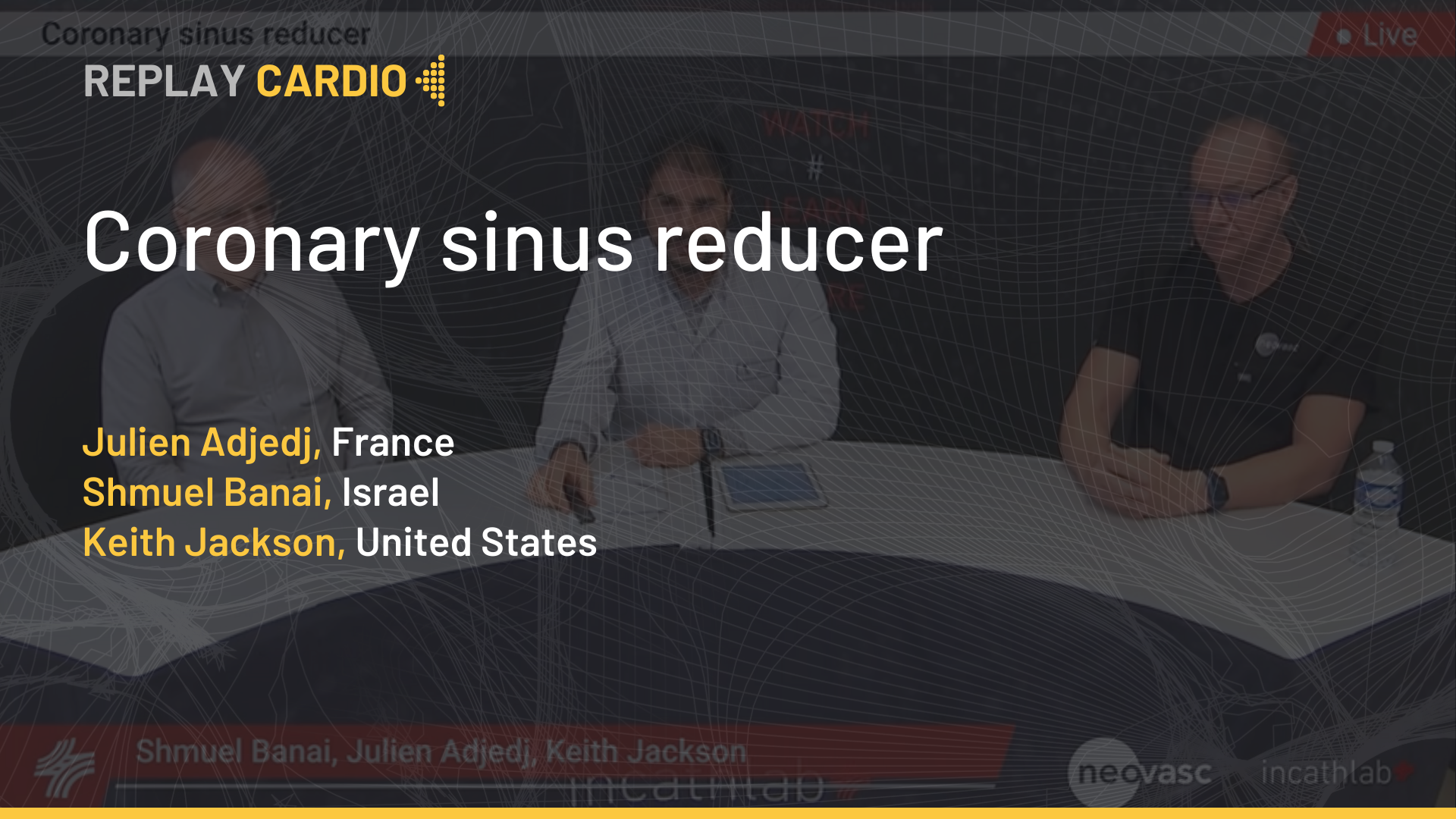
Amir Aziz A. It's a small diagonal at mid LAD. Any rational to protect less than 2mm diagonal branch?
Felix V. i get always Problems with Audio while watching incathlabLeave a new comment to the discussion
Michel P. hello Amir,
If you talk about the live case, we could see it was a big diagonal branch , narrowed at its origin,
Michel P. At least 2.5 mm. So you have to protect it and to treat it.
ersan T. Can we choose mini crush stenting as a first ?
Michel P. Yes, you can but we tried in this live case to do a single stent strategy T provisional . For a two stent strategy, we prefer TAP technique
Laurent D. I total agree with michel. in this case with a very short ostial lesion the provisional stenting technique is the best strategy.
in the case of a two stents strategy the choice between crush, mini crush, T, culotte depend on the difference of diameter between main and side branch and of the angle of the bifurcation
Plamen K. Very very interesting cases
Michel P. Thank tou very much !
Umar S. Really interesting one
bassem J. good but still stenosis on ostial dg